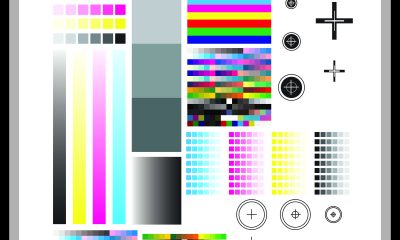“We’re from the government, and we’re here to help.” Yeah. Help yourself to our money!
“We’re from the government, and we’re here to help.” Yeah. Help yourself to our money!
As municipal, state/provincial, and national government costs go up, so does their need to take more and more of our money through taxes and fees. In Canada and the U.S., the politicians slash income and corporate taxes, but this just means other layers of government must be creative to find more cash. I have this sick vision of government tax collectors and inspectors from different states getting together with their peers in Las Vegas (taxpayer funded, of course) and having roundtable discussions where they share ideas about shaking down whole industries.
My interest in these tactics was re-awakened by a letter to the editor of Screen Printing magazine regarding a little war going on in California between T-shirt printers and the Department of Labor (DoL). Apparently, flying squads of DoL bureaucrats have been systematically hitting up screen-printing shops and assessing fines and collecting fees as they enforce rules pertaining to a quaint little piece of sweatshop labor war history called a Garment Manufacturing License (GML), which a few states keep on the books, even though the textile industry is more or less gone from North America. Targeting of screen printers has been going on for a number of years. Searching the Web for “garment manufacturer’s license California” turns up some tales of shakedowns that would make the Mafia blush.
Most shops raided have never heard of the GML. Once informed of the rules, the most common reaction is, “We don’t manufacture clothing!” Not according to California Labor Commissioner Angela Bradstreet, who said, “Silk screening and embroidery companies need to know that they are included in the garment industry as manufacturers and must comply with garment-industry labor and registration requirements.”
Advertisement
Once visited, shops can be fined $100 per employee, they must write the GML exam, and they are then charged $750 to register and up to $2,500 per year to maintain the license. If the shop tries to fight the license requirement, the state can immediately shut the business down—and tack on additional fines or fees. Appeals are heard by an adjudicator from the DoL. When a screen printer has the guts to take the situation to court, the printer has won. But the state refuses to recognize the ruling. State Assembly reps have tried to get the GML rules amended and clarified. Even the SGIA tried to intervene. To date, nothing has worked.
So, why should we care? I fought audits of my company by B.C. provincial tax auditors in 1989 and 1998. In both cases, it was a field auditor looking specifically at screen printers and supposed back taxes owed on stencil material. I had to go through multiple appeal levels where the so-called experts backed the auditor. I finally won with a direct appeal to the finance minister. His letter agreeing that yes, stencils in screen printing were like plates in offset, and therefore exempt under the Printers and Publishers section of the tax act, was then distributed within the industry in B.C. by suppliers like Willox Graphics in Vancouver and pulled out whenever a field audit occurred. It was never sent out as a directive by the government.
Ten years later, auditors started targeting screen and pad printers again and told owners with copies of the 1989 letter from the finance minister the ruling no longer applied. Some calls on behalf of immigrant friends who had been audited led to the head of litigation. The province’s top lawyer in the tax department explained patiently how they had determined that screen printers and pad printers were no longer allowed to use their tax exemption on any materials—not just stencils—because they were no longer included under the printers and publishers section of the tax act. I referred to my previous letter from the finance minister. We were printers then. What has changed?
“Because our experts have decided that screen printers are not real printers,” she said. I asked her what a real printer was. “Well, someone who prints on paper.”
I then asked nicely if she could write that down. Once we had her letter on government stationery, it only required quoting a dictionary and the tax act itself to show nobody except she and the auditors made a distinction between printers, and defining a printer by material.
They backed down and admitted in a follow up letter that yes, after review, screen printers were printers, too, and entitled to their exemptions. The irony is they just did away with the old exemption-based sales-tax system here. So it’s all history now.
Advertisement
Unfortunately for California’s screen printers and embroiderers, this year they once again failed to get their amendment to the GML addressed. It didn’t even make it past committee, sunk by DoL heavyweights who will not recognize the rulings from lower courts where some brave (and probably broke) screen printer stood up. Illegitimi non carborundum.
Andy MacDougall is a screen-printing trainer and consultant based on Vancouver Island in Canada and a member of the Academy of Screen Printing Technology. If you have production problems you’d like to see him address in “Shop Talk,” e-mail your comments and questions to andy@squeegeeville.com.

 Art, Ad, or Alchemy1 month ago
Art, Ad, or Alchemy1 month ago
 Case Studies1 month ago
Case Studies1 month ago
 Andy MacDougall1 month ago
Andy MacDougall1 month ago
 Columns2 weeks ago
Columns2 weeks ago
 Editor's Note2 weeks ago
Editor's Note2 weeks ago
 Thomas Trimingham2 months ago
Thomas Trimingham2 months ago
 Marshall Atkinson2 weeks ago
Marshall Atkinson2 weeks ago
 News & Trends1 month ago
News & Trends1 month ago















